News
15 Dec 2021
Case Study: St Patrick’s Basilica, Oamaru, New Zealand
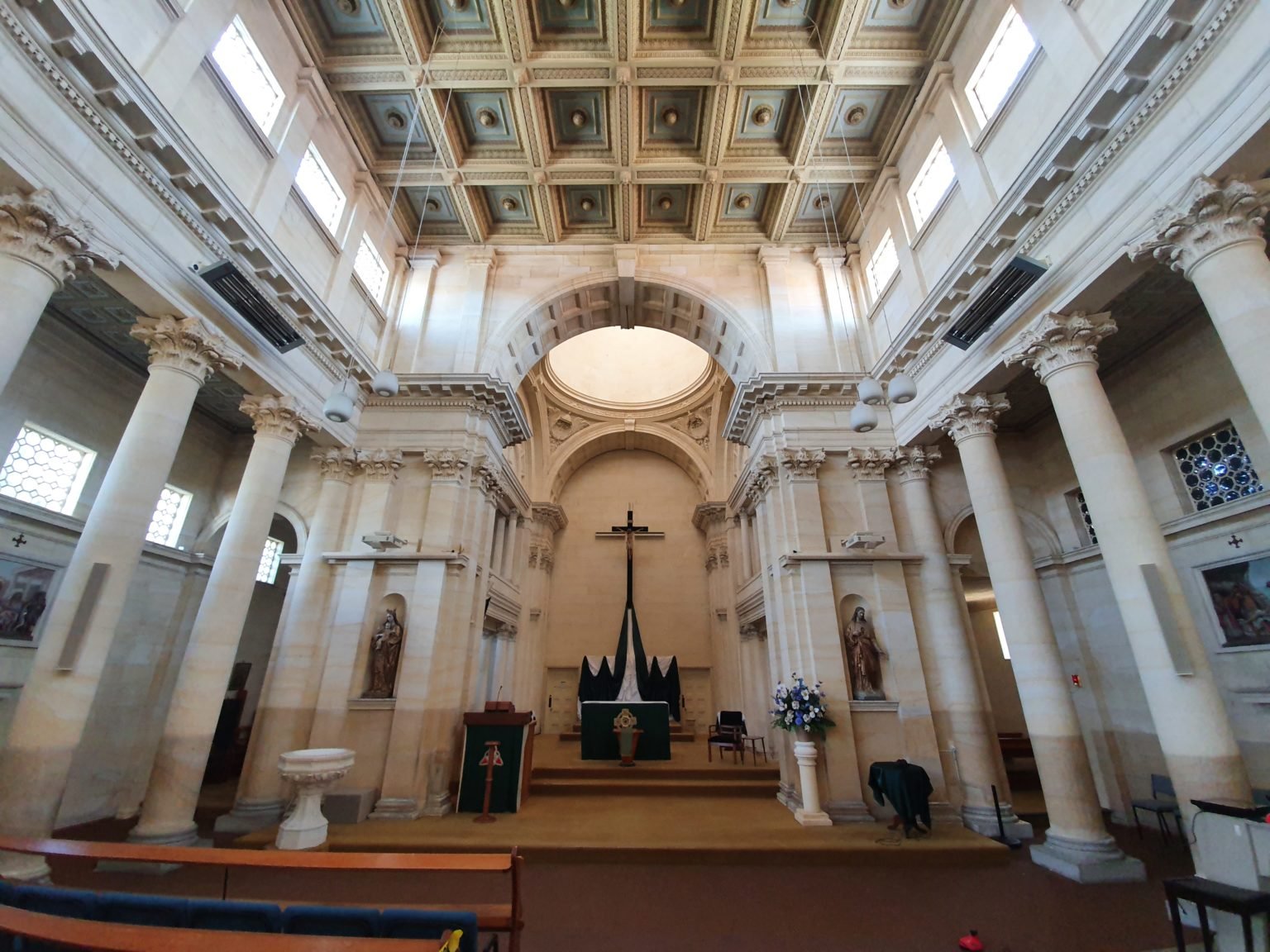
Subscribe to CX E-News
THE VENUE
St Patrick’s Basilica, otherwise known as Oamaru Basilica, is located in Oamaru, New Zealand, and was designed by renowned architect Francis Petre. It’s known as perhaps the best example of his work. First opened way back in 1918, the term “basilica”—for those readers not entirely full bottle on ancient Roman history—refers to a style of architecture known as Roman Renaissance and is heavy on ornate columns, arches, a classic portico entrance and three large domes that have become a landmark of the town. Of course, being built in Oamaru, it’s mainly constructed of the legendary Oamaru stone that’s quarried just outside of town.
So, it’s an historically famous building by a famous architect, incorporating a famous landmark, and built with the famed construction equivalent of crumbly fetta cheese. A project needing patience, finesse, and some really, really, long masonry drill bits.
Good news travels fast amongst the religious fraternity in New Zealand, and it was Monsignor John Harris of the Catholic Diocese in Dunedin who brought together the Oamaru Basilica and Mark Patterson of Lifestyle AV, because Mark had successfully done a similar project in St Paul’s Cathedral.
During the early discussions and site inspections Mark just happened to have a d&b audiotechnik speaker system in the back of his car—as you do—and set up a quick demonstration. The quality and clarity of the audio were instantly impressive, and Mark was pretty much commissioned on the spot, then a field trip to see and hear the d&b system in St Paul’s sealed the deal.
THE CHALLENGE
The expanded purpose of the new equipment catered for the obvious pulpit sermons, a variety of wireless microphones for reinforcing musicians and a choir, plus capturing it all for a live stream system that Mark was also installing. On top of these were a state-of-the-art projection system designed more as a visual aid for the audience, rather than a broadcasting platform for external sources.
All up, there was a lot of cabling and equipment that might clash with the historical aesthetics of the Basilica. As Mark explains, “I wanted all the technology to be borderline invisible so that people could still enjoy the building.” In this regard, the Roman Renaissance design provided some answers instead of obstacles. The myriad of carved ledges and decorative stonework often created a nook or cranny where cabling could be tucked away. Where these weren’t available, as he did in St Paul’s, Mark carefully colour-matched everything to blend in with the Oamaru stone. By ‘everything’, that meant the wiring, the speakers, and even the projectors. In some situations, holes were bored through walls using drill bits 1.5m long. Fortunately, Mark could get advice from a local Oamaru stonemason who works with the church and incidentally helped patch the damage left from removing the older equipment.
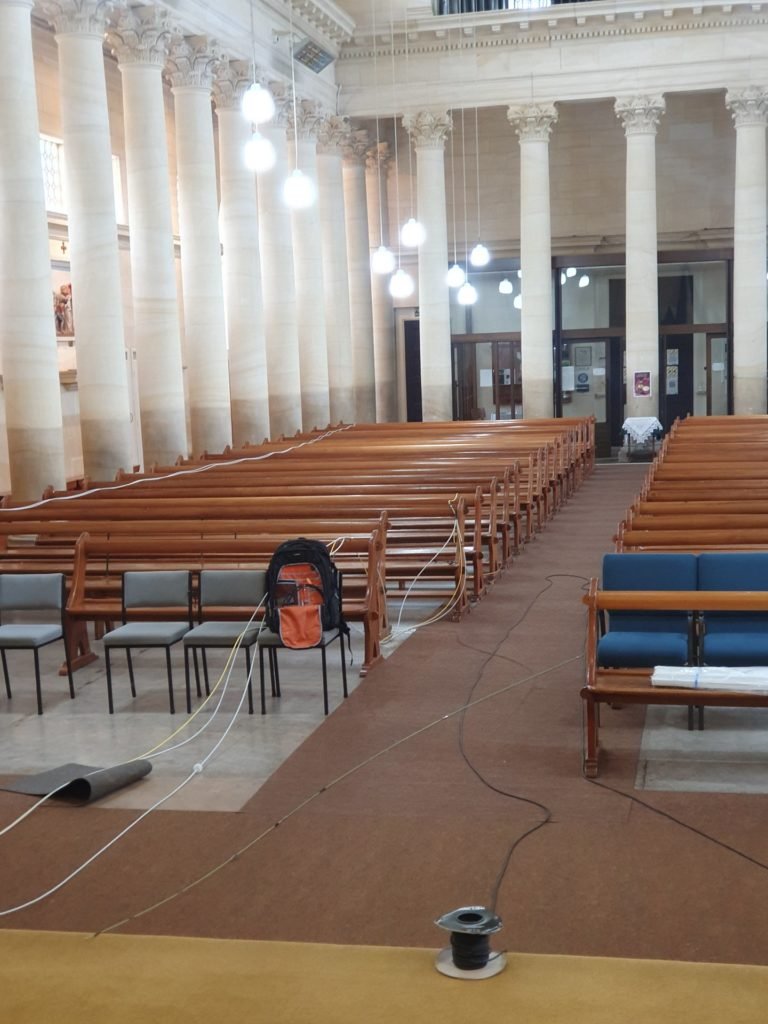
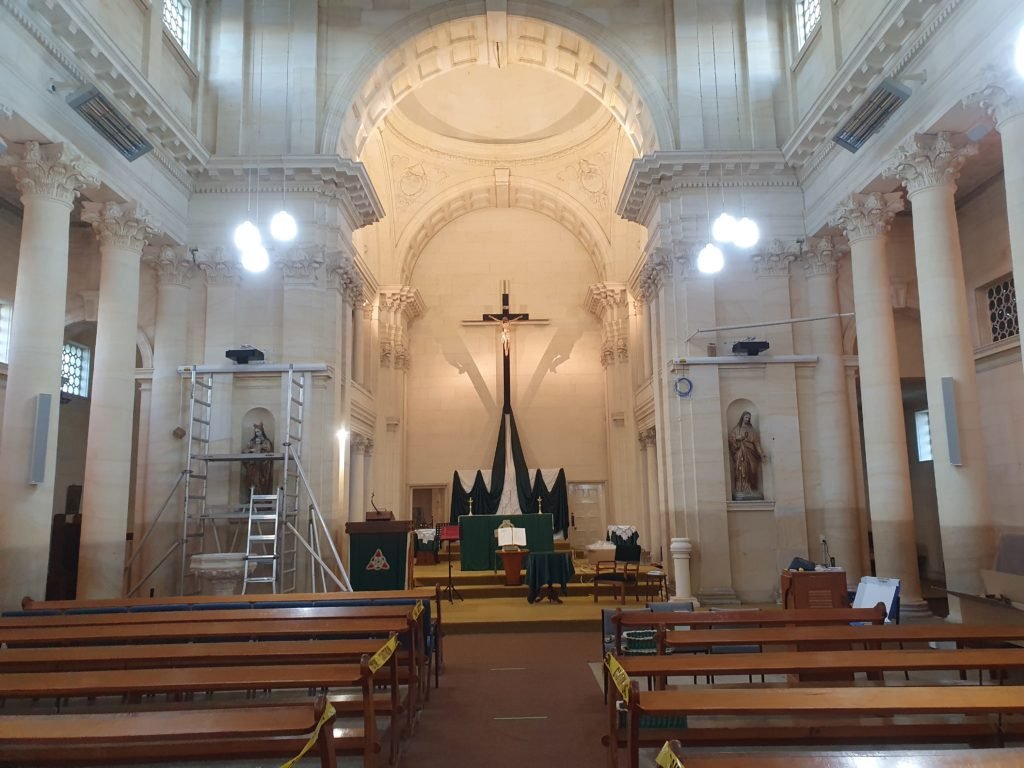
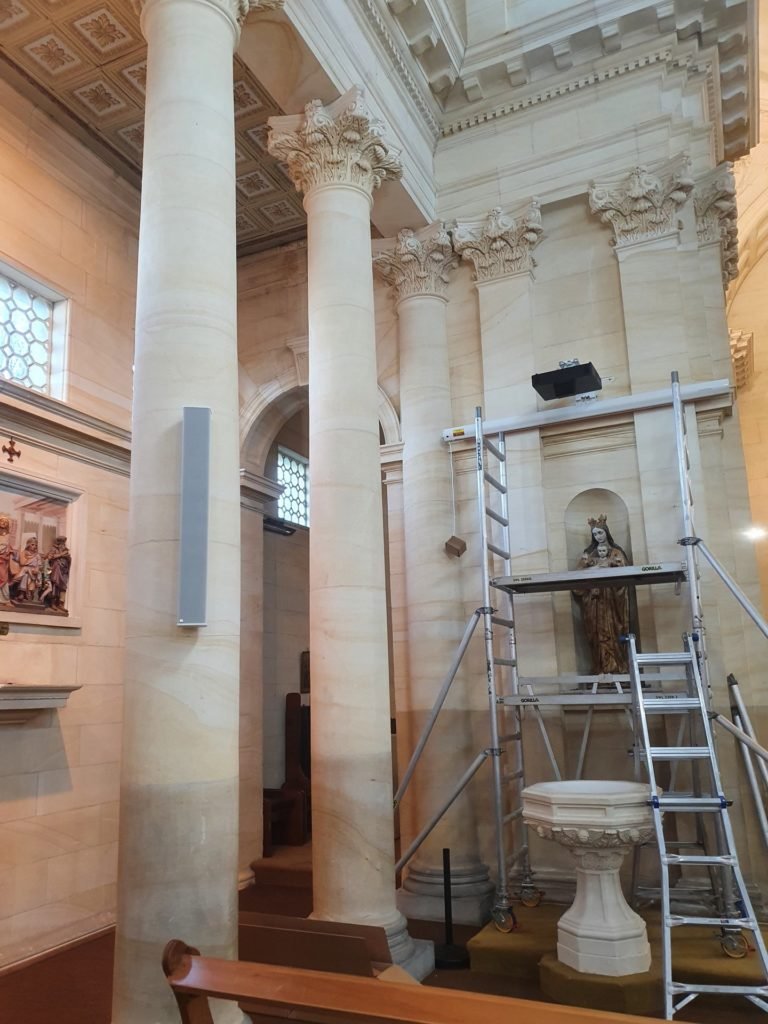
THE FIX
Covid 19 restrictions inevitably impacted the project. On the downside, Mark once again became an installation team of one, doing the majority of the work alone. On the upside, access to the church was easier because the Basilica was closed to the public. Mark gives NAS Solutions a gong for going “above and beyond” — apparently providing Audio Visual gear even for an historical church refit doesn’t rate as an ‘essential service’ and just shipping the equipment to Mark was problematic, but NAS persevered.
Last, but not least, a well-known chap who’s familiar with the church once said, “It is easier for a camel to go through the eye of a needle…” Fast-forward a couple of thousand years and he might have been talking about getting a hydraulic platform through the back door of the church. Countless reverse-turns cribbed a millimetre every time. It seems the Romans never used scissor lifts.
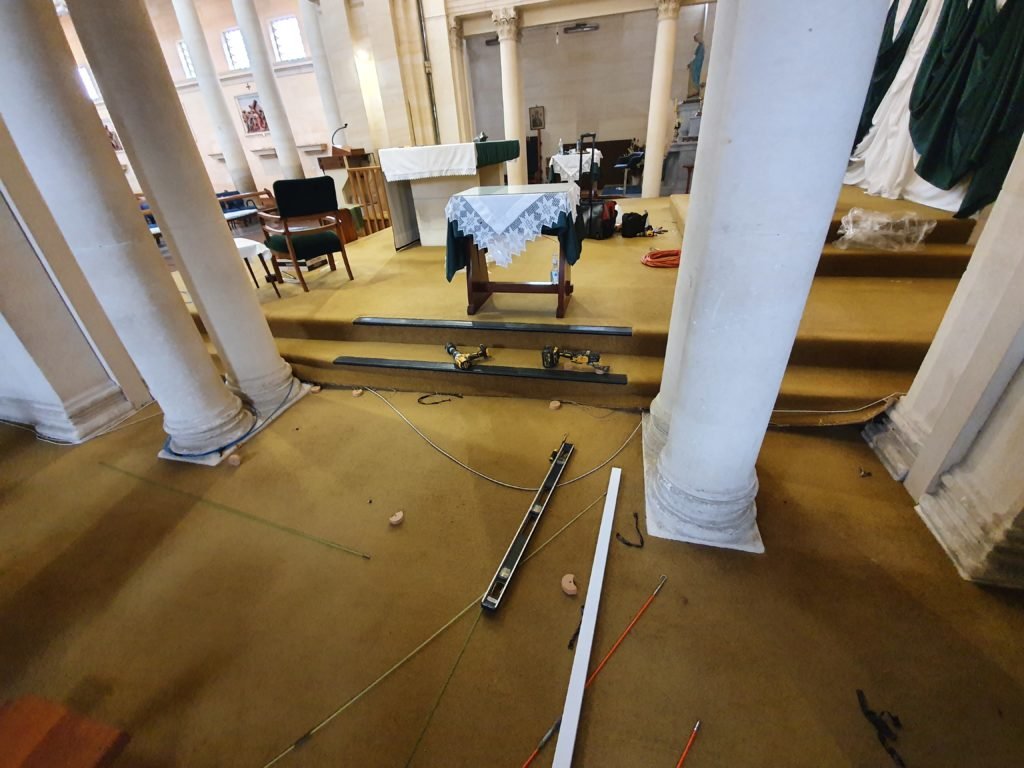
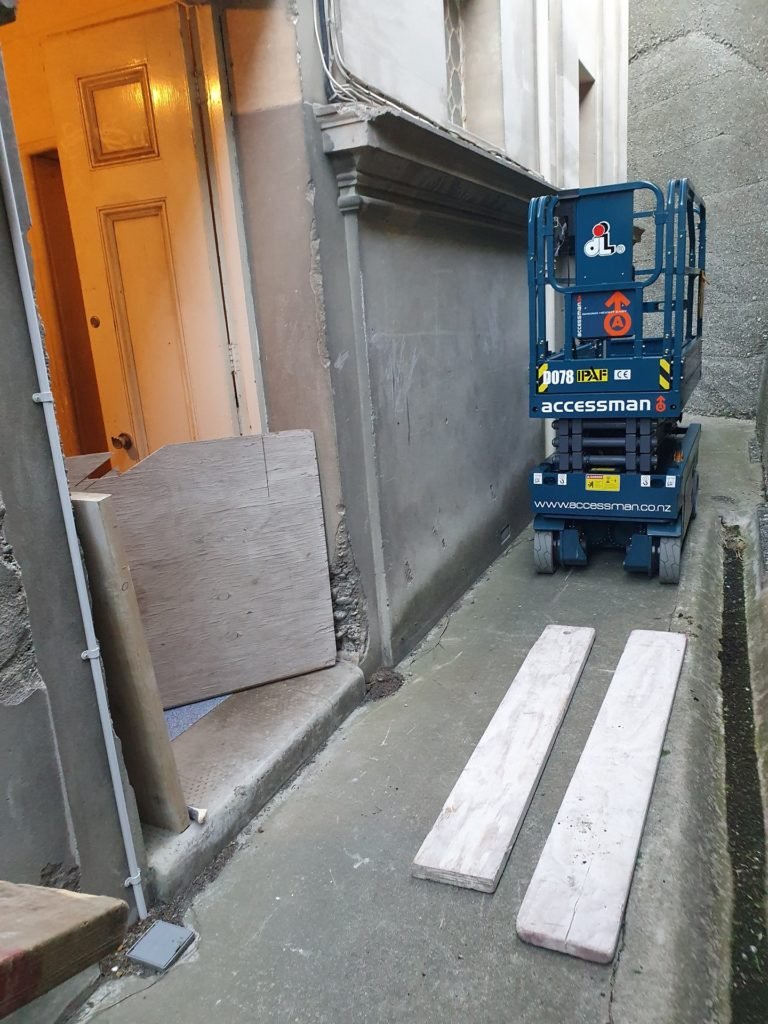
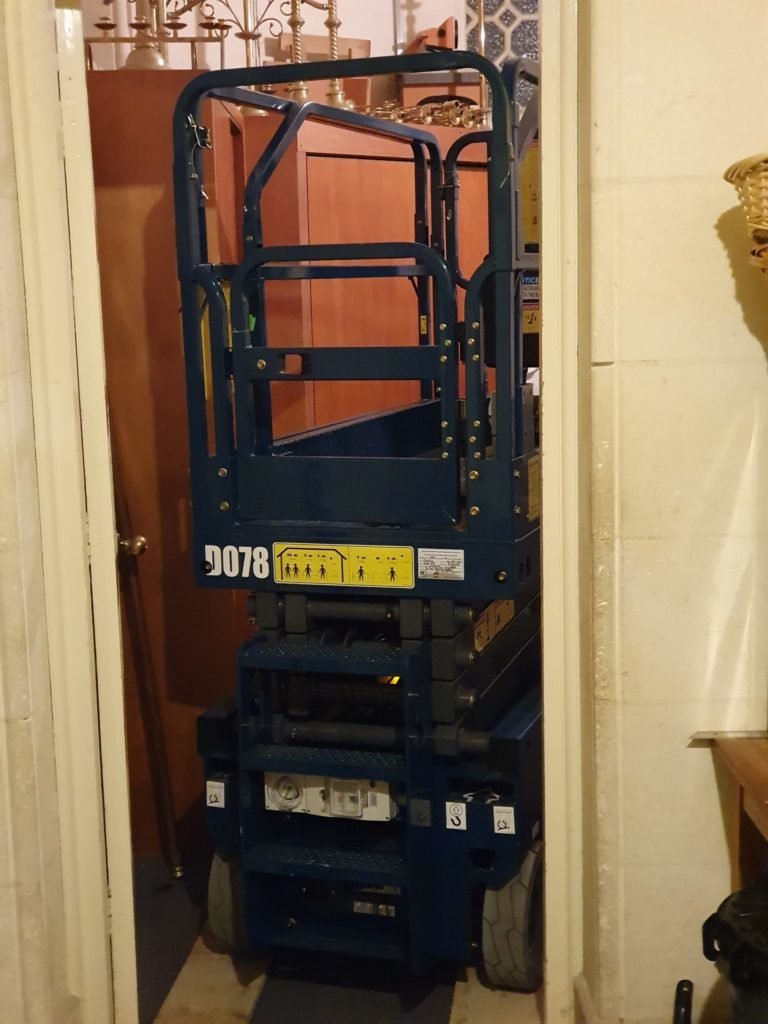
The four d&b 24Cs covering the main area easily provided the clarity and SPL needed, while a d&b 8S was placed at the very front as a kind of ‘stage fill’ for people taking part in any proceedings. There’s also a d&b 12S subwoofer, but that’s mainly with any musical performances in mind. Powering the 24Cs, 8S and 12S is a d&b 10D amplifier.
It’s worth mentioning that the ceiling is made of embossed zinc panels—lightweight plates—which contribute to the building’s excellent acoustics.
An Ashly Protea ne24.24M runs processing across the whole system.
THE RESULT
The final result exceeded even Mark’s expectations—and he’s the kind of dedicated professional who expects a lot.
Mark kept all the controllers and choice of equipment simple so that anyone can operate the system. The painstaking colour-matching and careful cabling has paid off allowing everything to blend perfectly with the 100-year-old stonework.
The history of St Patrick’s Basilica was in safe hands and kept intact, while the future thanks to d&b is definitely focused on the digital age.
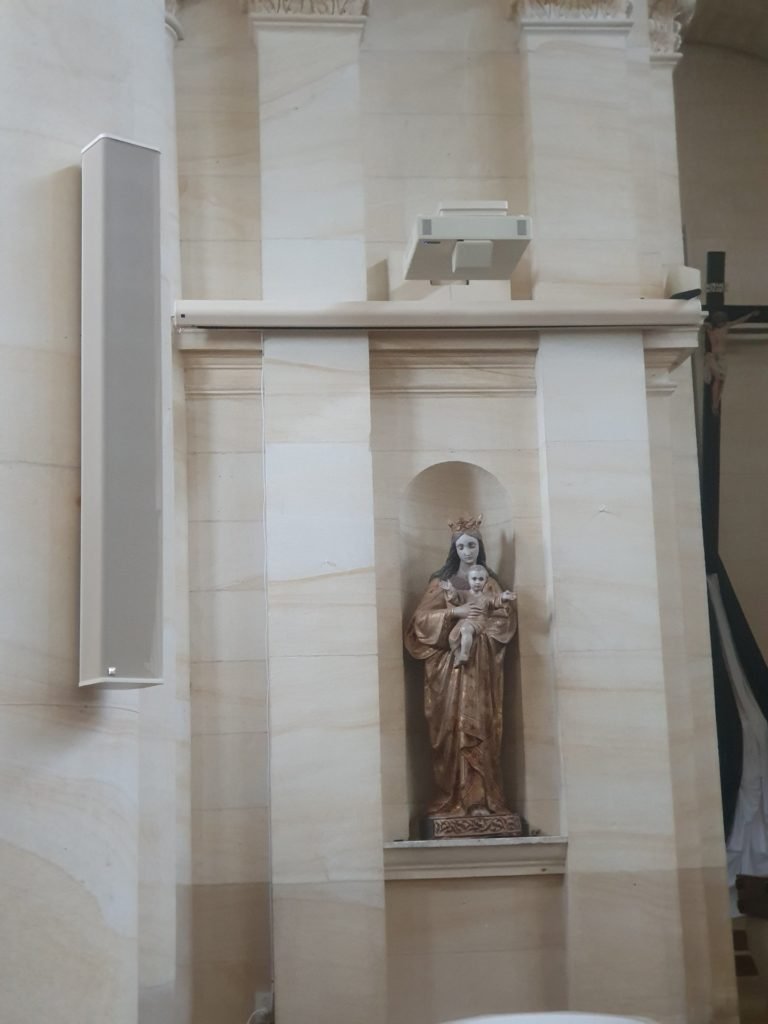
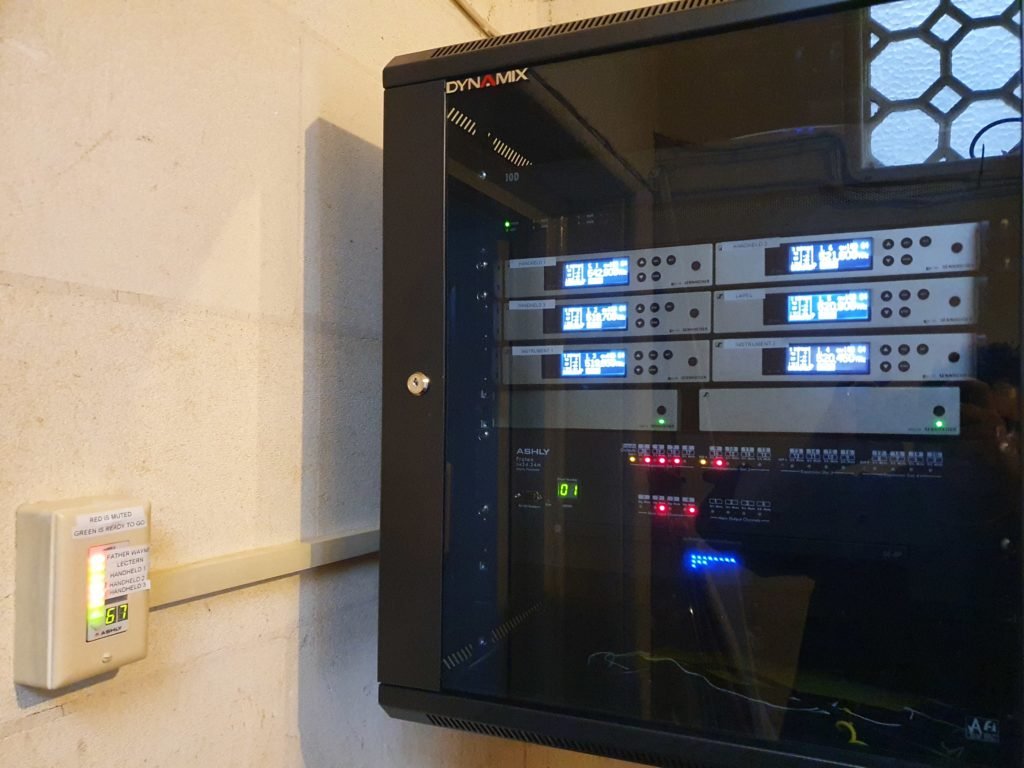
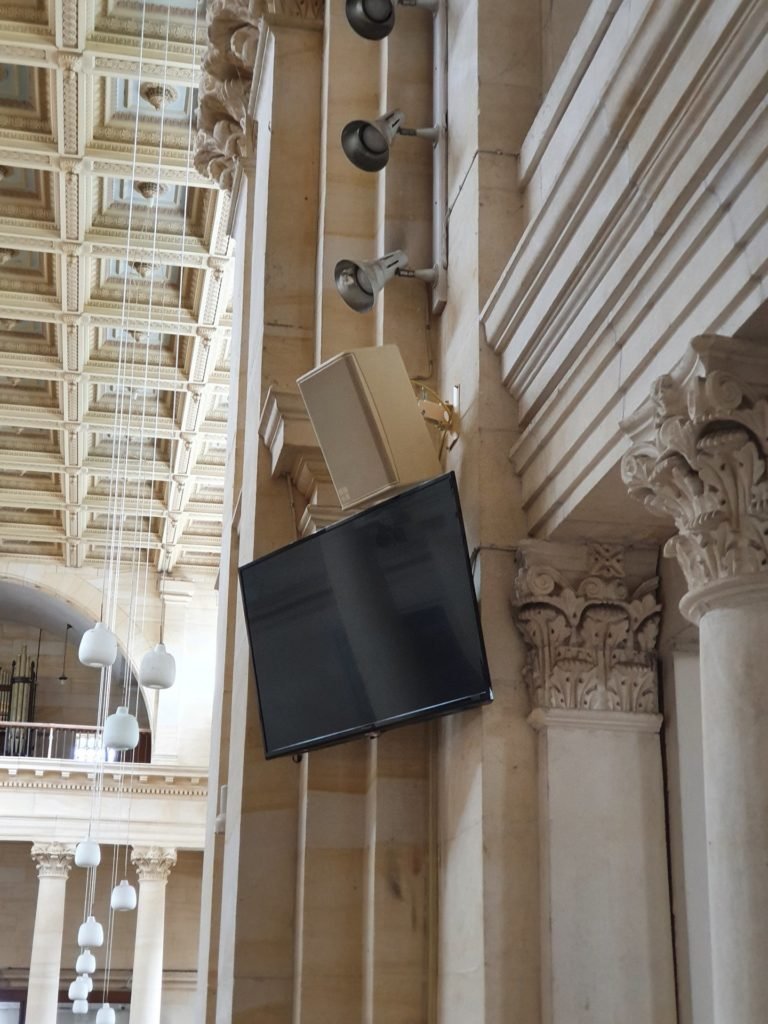
GEAR LIST
d&b 24C column loudspeaker
6× 4-Inch Drivers, 6× 1.1-Inch Tweeters
Max. SPL: 126dB
Freq. Response: 110Hz – 17kHz
Dispersion: 90° × 20° (H × V)
Weight: 9kg
d&b 8S loudspeaker
8-Inch LF Driver, 1-Inch Compression Driver
Max. SPL: 124dB
Freq. Response: 70Hz – 20kHz
Directivity: 100° conical
Weight: 7.4kg
d&b 12S subwoofer
Single 12-Inch LF Driver
Max. SPL: 124dB
Freq. Response: 45Hz – 130Hz
Power: 300W RMS
Weight: 16kg
d&b 10D amplifier
Four-channel amplifier
Input Gain control for each channel
Two 16-band EQs
Input & Load monitoring
Web interface control
Ashly Protea ne24.24.M processor
Expandable up to 24 channels
Mic/Line inputs
24-bit A/D-D/A conversion
31 preset locations
Intuitive user interface
Subscribe
Published monthly since 1991, our famous AV industry magazine is free for download or pay for print. Subscribers also receive CX News, our free weekly email with the latest industry news and jobs.






